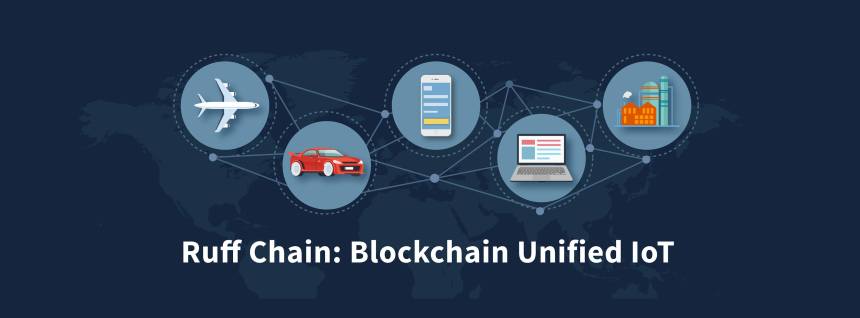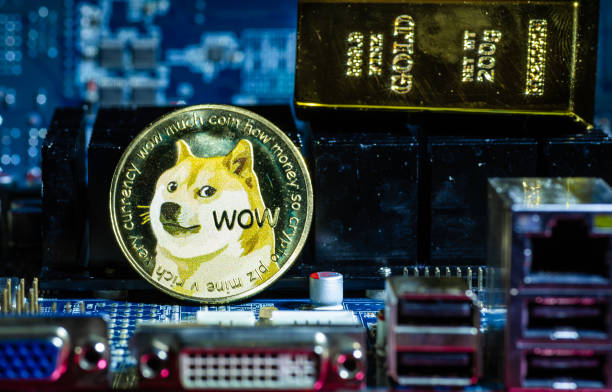Reason to trust

How Our News is Made
Strict editorial policy that focuses on accuracy, relevance, and impartiality
Ad discliamer
Morbi pretium leo et nisl aliquam mollis. Quisque arcu lorem, ultricies quis pellentesque nec, ullamcorper eu odio.
Q: Is this your first time in Korea?
A: I have made a few personal trips here, this is my first time visiting for business.
Q: Please briefly introduce yourself.
A: My name is Roy Li, I am the founder of Ruff Chain (RC). RC is an Internet of Things (IoT) business that integrates blockchain technology. I have been actively contributing to this field for 15 years. I specialize in security/free systems and IoT. I have been working on Ruff Chain for approximately four years. While we haven’t been around for a long time, companies like Microsoft, GE, Schneider, and Baidu have implemented some of our technology.
Q: What kind of platform is Ruff? Could you tell me in more detail?
A: The issue with Blockchain and IoT is that it takes a lot of time and resources to make applications. If someone wanted to make a webpage or a mobile phone app, it wouldn’t be very difficult. There are easier programming languages, instructional videos and sites to walk you through it. Creating apps based around IoT or blockchain is still relatively uncharted territory. RC provides users a JavaScript runtime as well as a hardware abstraction layer to skip the hardest part of developing an app for this industry.
If we were doing this from scratch, we would write it in C language, but this makes memory/ processing hard to manage. We are trying to provide a standard API that can be used on any machine, protocol and on any drive. You will be able to develop applications because it is easy to utilize the system. This is why many companies are using our technology.
Q: Sounds wonderful, how did you start your career in Ruff?
A: I wanted to build a smart home kit in 2014 and had ordered many different pieces from online stores. While I was building them, I realized that with my knowledge of firmware, drive control, protocol, GPI, I2C, as well as a few others, I was able to assemble them to complement each other. It was a bit odd when I was finished, but it was a great machine. I was confident in the technology I had built and that I could improve upon it.
I began to think that I needed something similar to Windows to run these machines, like Ethereum in the blockchain industry. While my development skills are not as strong as others, I have the ability to construct the large infrastructure needed for RC. Since getting this project going, we have helped meet the needs of more than 15,000 developers. We are going to focus on having our product cater to developers working for companies instead of the personal retail markets.
Q: The most important thing in IoT technology is security. How is Ruff different from others?
A. There are a few security issues with typical IoT. There are vulnerabilities in access options, and risks with remote access. To solve these problems we use Edge computing nodes.
Major security issues have emerged in smart contracts. In Turing completeness, any developer can come in and make changes to the code. It can be hard to keep track of all these changes, so mistakes can be missed which can result in security issues. While we still implement Turing completeness, we restrict who can and cannot develop for us. We also create many layers to further protect ourselves.
Q: This could be a sensitive question, but I heard that IOTA is very famous in this field, what is Ruff’s own advantage against IOTA or any other companies?
A: IOTA is also meaningful because it has opened the door between Blockchain and IoT. But I don’t think IOTA is doing enough in the IoT area. First, Directed Acyclic Graph (DAG) technology has not yet been proven. DAG makes it easy to transfer content, but it is challenging to synchronize with the Internet. For synchronization to take place, it needs an arbitrator, but then we could not classify this as ‘decentralization’. It will take some time to solve this problem.
In the case of Ruff, we do not use this kind of mechanism. We use DPoS which can be considered more mainstream, as many other public chains are using this method. Ruff also supports smart contracts like Ethereum. This feature helps to separate us from other projects like UTX, Bitcoin, and Litecoin.
In addition, IOTA’s support system for their application is uncertain. RC has support for runtimes, utilities, libraries, and a drive for protocols. It is possible for us to interconvert with the main equipment, which is what we think is the most important feature.
Q: The Ruff team’s formation is very interesting. There are many developers but also many investors. Can you tell me more about your team?
A: Our team is comprised of approximately 70% developers. The majority of them came from well-known companies like Intel, Google, Baidu, and Nvidia. We also have approximately 15,000 developers in our public developer community we manage.
Q: According to the white paper, there are 4 grades (steps) of node efficiency. Is that right?
A: IoT must manage a maximum of 50 billion nodes. This is completely different from mobile or PC. Data from sensors, cameras, MCUs, various micro controllers and more needs to be analyzed. There is limited space for storing the data in an MCU. The main role for these units is processing data, performing business logic, setting alarms, etc. Next, there is the gateway router. In this instance, this unit is much bigger. This is called SPV and it does not store all of the block information, but only hash values. It checks the validity of trades or classifies and verifies the updated information.
A Full Node uses more than 500GB / 1TB of storage. For reference, a full Ethereum node is now over 500GB. A Full Node is normally used in a mainframe computer’s data sensor. These nodes oversee trade and contract books. It stores information according to the current global standard.
Finally, there is the Electric Node. This verifies all information within the package. It is like a prospector. It binds trade and contract data together and acts as a settlement mechanism.
Q: What is Ruff’s expectation of future Blockchain?
A: It will be the best platform so long as there is enough infrastructure for further development. Innovation in engineering will bring a further advancement rather than focusing on the consensus algorithm.
Q: What is Ruff’s ultimate goal?
A: In the early stages of our project (2015/2016) we used to compete with Google. Google created an IoT platform called Brillo that eventually failed. We hope to overcome their shortcomings at some point in the near future. I have many friends who work at Google, I hope they don’t get upset about it when we do.
Q: Are there plans for a token sale?
A: We are already listed on Huobi, so there is no token sale. We are aiming to list on at least two more Korean exchanges. We would love to gain some new Korean users and investors to build a stronger local Korean community.
KakaoTalk Group https://open.kakao.com/o/gRDMDSN
Medium- https://medium.com/@ruffchain
Twitter — https://twitter.com/ruff_chain
Telegram — https://t.me/RuffChain
Website — https://ruffchain.com/
Reddit—https://www.reddit.com/r/ruffchain/


























